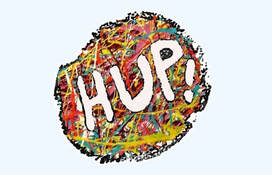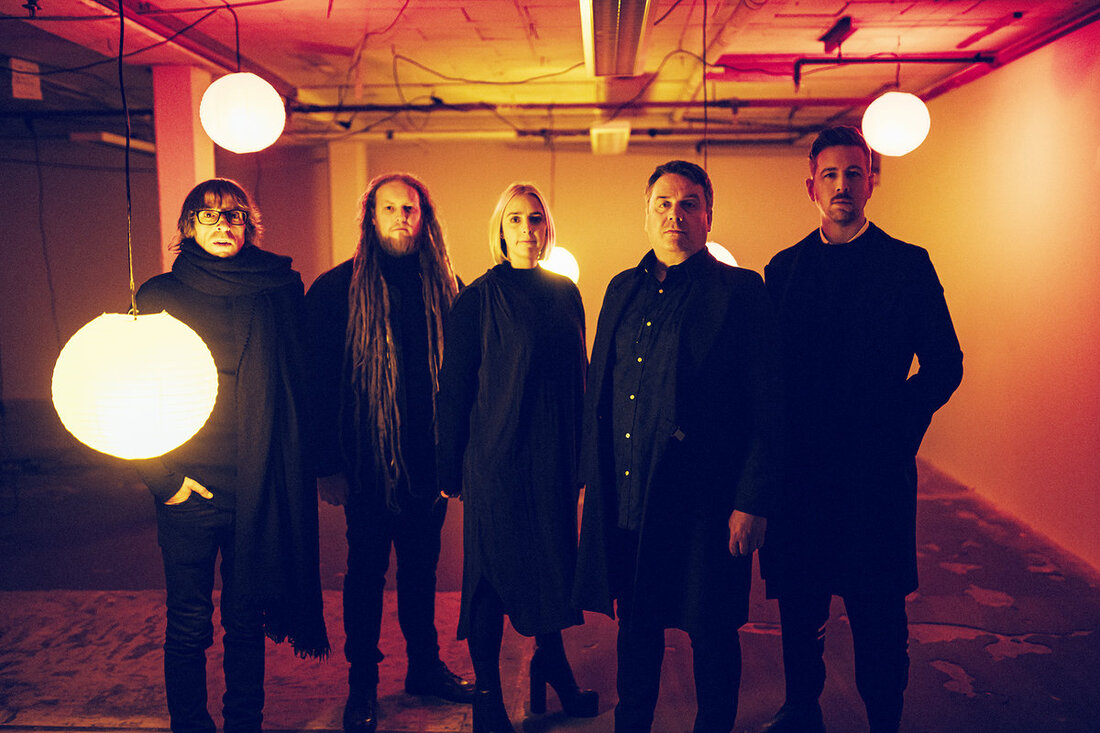|
I N T E R V I E W
Martin Phillips of The Chills By Dean Ballinger HUP was fortunate enough to put some questions to a true legend of New Zealand music, Martin Phillips of The Chills, ahead of the release of the band's new album and forthcoming tour of Aotearoa. Dean Ballinger posed the questions and Martin responded with some revealing answers, which, amongst other things, remind us of the incredible and often dramatic history of the band as well as shining a light on what lies behind The Chills existence and modus operandi in 2021. A fascinating read awaits... HUP: The 2010s witnessed a Chills renaissance of sorts – regular album releases and the release in 2019 of the well-regarded documentary The Chills: The Triumph & Tragedy of Martin Phillipps. To what extent was this renewed activity planned or fortuitous? MP: Very fortuitous! Although The Chills had never stopped writing, recording and touring it was not until we played at a combined New Year’s Eve / 50th Birthday party in Queenstown in 2011 that someone entered the picture who, of course, turned out to be a peaceful hippie art dealer U.S. millionaire who was determined to see our fortunes improve. A long story followed but this lead to our connection with Fire Records in London who have handled us since. HUP: What are your hopes and ambitions for the new album Scatterbrain? MP: Hopes are so uncertain in the Covid era but I guess I have two hopes: the first is the obvious one that this new album reaches a much bigger appreciative audience in these times - when achieving that has become so much more problematic for “legacy” artists. We know we have produced an album of exceptional quality but that is no guarantee. The second hope is that, after three recent quality albums in a row, it finally puts to bed the perception that The Chills were a band who had some hits and near hits in the eighties and then more or less faded away. I think we have proven that the story is still unfolding and that the new music, although different to the early years, is by no means lacking that individual quality. HUP: Silver Bullets (2015) appeared to have a loose theme in terms of several songs dealing with environmental and political issues: similarly, Snowbound (2018) came across as an album dealing with middle-aged reflections on the self, the world, and mortality. Is there a similar thematic focus to the songs on Scatterbrain? MP: There is an overall theme on ‘Scatterbrain’ of confronting aspects of mortality. The album did not start out that way - with me (once again) perhaps dwelling too strongly on concepts of environment and consumerism etc, but it was pointed out to me that the material I wrote which was the most personal was also that which connected with persons of my own era who were maybe going through similar issues. The loss of parents and loved ones, acceptance of probable solitude until death etc. HUP: The lyrics on the recent Chills albums come across as more direct and mature engagements with society and the self, rather than the more abstract and romantic lyrics of early Chills material. Do you think your approach to musical factors such as composition and style has also changed or developed over the recent Chills albums? MP: When I first discovered that I even had a talent for music I began experimenting with a weird mixture of my formative influences - Dr Seuss, Ray Bradbury, ‘60s pop and TV etc - but also trying to find something with a bit of darkness and depth within that. At the moment I am trying to tap directly into my own experiences but then I tend to strip away the references which might not relate as much to other peoples’ experiences because I believe that the material will then connect more directly with them and be of more help to those trying to put words and background to their own situations.
HUP: In terms of songwriting, do you tend to write a lot of material specifically for each new album, or select songs from a pool of material you may have had in the works for some time which you decide ‘suits’ the feel you are going for? MP: This is, perhaps, the first album where I have not drawn upon at least a few riffs going back many years - in some cases from as far back as the early eighties. I found I had enough new material coming through that I did not even have to search through the archives this time around or also have the need to finally complete songs which have been hovering around for decades. Having said that there are hundreds of riffs and songs I have begun since 1980 and I believe we are getting close to having those in an accessible digitised format where I can start to attempt completing as many as I can of the better ones. HUP: The current incarnation of The Chills has been consistently stable for many years (although long-term bassist James Dickson has been replaced with Callum Hampton for Scatterbrain). How did you meet and enlist the current line-up? MP: Yes - I’ve only lost two members in the last twenty-one years - and that’s longer than the early Chills years with the notorious ongoing line-up changes. I have met all of the current line-up through previous musical encounters or from recommendations. I don’t think it’s wise for me to advertise a vacancy too much anymore. HUP: What prompted The Chills to sign with UK indie label Fire Records for the recent albums? How do you find the label by comparison with past record companies the Chills have been involved with (Flying Nun & Slash/Warners)? MP: A remarkable chain of events lead us to linking with Fire Records and we have found them to be an excellent and dedicated label who believe in The Chills on an international level. With great respect to Flying Nun we were not always a practical option for a New Zealand-based label and there have historically been times when I totally understood that investing in The Chills as an ongoing international act had backfired and taken funding away from more deserving contemporary acts. Now we are working happily with both labels as Flying Nun are still working our back-catalogue. HUP: The Chills: The Triumph & Tragedy of Martin Phillipps was a rather intimate look at yourself and the band. Now that the documentary has been out for a couple of years, how do you feel about it? How have you found the audience and critical responses to the film? MP: Initially I wasn’t even sure that I would live to see the release of the film. Now I realise that I revealed more about myself than I might have chosen to do. We were determined to be honest because of the serious nature of the health message within the movie. I had not seen quite how eccentric I was until I watched the film with a full cinema of other people at various premieres around the world. But I stand by the film for its sheer honesty and the extraordinary quality of its production. In preparation for the documentary I had watched a lot of “rockumentaries” and I still believe that this one is up there with some of the best. HUP: Digital media and the internet are often portrayed as deleterious for musicians, e.g. fostering audience expectations that music should be ‘free’; miserly royalty rates from music platforms such as Spotify. However, they can also have more positive dimensions, for instance bands being able to perform for audiences ‘live’ online in relation to Covid lockdowns. As a professional musician, what are your opinions on the pros and cons of our current digital era? MP: Largely it is disastrous for older artists as, like any dedicated career, we have invested years and many thousands of dollars only to find that the whole product has been devalued [read - profits diverted!] and you are being told to just keep touring and selling merchandise. That doesn’t work on a practical level within New Zealand. The bright side is that the desperation is bringing out the best in people’s creativity and the imagining of new and different business models. HUP: The Chills have been around for over 40 years now. What might be one career highlight and one career lowlight that come to mind? MP: Because of Prime Minister David Lange’s Labour government’s ongoing stance in the eighties against American warships visiting New Zealand, The Chills were, apparently, seen favourably by Moscow and we were only the fourth Western band to be allowed entrance to perform in East Berlin - some years prior to the Wall coming down. We watched the KGB, shivering in their little Trabant, follow us around the cafes and bookshops on our morning off. But then, because of our visit to the Eastern Block, when we next toured the USA, we were informed that we were very likely now on a CIA watch-list. Our statement in the ‘Submarine Bells’ album liner notes about America’s Neither Confirm Nor Deny policy on nuclear weapons on warships had not helped. Also around that time we toured Italy (in the late eighties) and two gigs into the tour a Mafia underling took over tour management to ensure that the payments were made promptly and correctly. He said “My name is Angelo, I am from Sicily - but it is no problem!”. We have many stories… Big thanks to Martin for taking the time to talk to us! The new album, 'Scatterbrain', is out May 14 on Fire Records, and The Chills tour Aotearoa in April and May, catch them at a town near you: April 16 Oamaru Club, Oamaru with ASTA RANGU April 17 Larnach Castle, Dunedin Arts Festival SOLD OUT April 18 Festival of Colour, Wanaka SOLD OUT April 30 Cassels Blue Smoke, Christchurch with MOUSEY May 1 Wakatu Hotel, Nelson with MOUSEY (solo) May 6 St. Peter's Hall, Paekākāriki with LUKE BUDA May 7 Meow, Wellington with LUKE BUDA May 8 The Cabana, Napier with DEVIL'S ELBOW May 9 The Dome, Gisborne with BITTER DEFEAT May 13 Totara St, Mount Maunganui with BITTER DEFEAT May 14 THE CHILLS & THE BATS Powerstation, Auckland with PURPLE PILGRIMS May 15 Town Hall, Raglan with BITTER DEFEAT
0 Comments
Leave a Reply. |
Archives
July 2022
Categories |


 RSS Feed
RSS Feed
